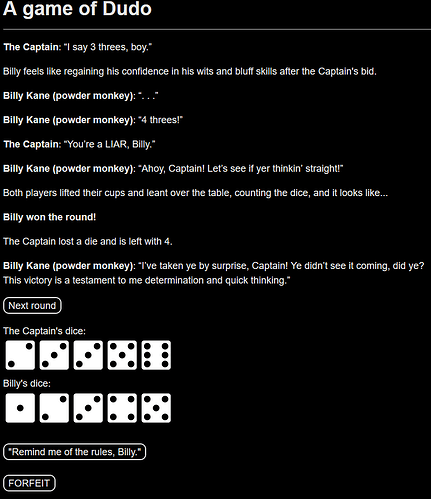![]()
![]()
![]()
Thoughts
“The Ship” is a well-structured suspenseful story with an early twist into science fiction and a number of well-done mini-games. I made it all the way through once, and I think I got most of the achievements and optional content. It’s a substantial work. For some reason it didn’t hold me, and I was impatient by the end.
What worked for me
I’m here for the two entangled time periods thing. For a while I wondered if we were in a Cloud Atlas scenario. There’s some surreal and underexplained connections between the eras, like adding the painting to the captain’s quarters. I like these weird details and actually wanted more of them!
For a moment I was skeptical of the loudly announced relationship changes, even before I’d met some of the characters, but they quickly grew on me as I recognized them as more of a scoring system and less of a diplomacy simulator. It was satisfying to see one of those boxes pop up.
The maps are small and easy to memorize and navigate; likewise the medium-sized cast of characters in 1719. The way the game gradually unlocks UI features, including the ability to jump between eras, is well-done.
I enjoy the fusebox and navigation minigame puzzles! I’m guessing these wear out their welcome for some people, and while I never found them terribly difficult I did think they got just complex enough to not feel trivial anymore.
I quite liked the visual trick at the climax of the piece, where we get a collision of three realities in three columns of dialogue. It captured that “the mothership lands” moment from the end of a Close Encounters. And the twist ending I got was a good chilling moment too.
What worked less well
The prose gets in the way. Examples include this verb-preposition mismatch in one of the first lines of the game:
The Captain woke up violently by the repeated pounding on the door of his cabin.
Much later, this description of the 1719 Captain’s thoughts took me out of the moment. “A couple of thingies” felt oddly modern to me; I think “thingummy” or “whatsit” might feel more period, even though they would also be anachronisms for so early in the 18th century.
Someway, somehow, in all this absurd nonsense, the Prisoner made him feel at peace. He had something small and reachable to focus on - bringing him that warm bowl of soup -, and something small and reachable to wait for - a couple of thingies and his potential help.
And at the climax of the story, I think this is just the wrong word? From context, I think it was supposed to be “Are you content with…”
The Light: “ARE YOU CONTEMPT BY WHAT YOU FOUND IN YOUR JOURNEY?”
There is a lot of text, and plenty of it is good, but there are enough of these moments mixed in to be distracting - so one more tester who was a great proofreader would help.
I also didn’t feel like the individual good bits of this pulled together into a coherent whole.
I liked the mini-games. They do advance the plot in the “I need the thing on the other side of this combination lock” sense, but I wouldn’t say they help tell the story. They’re not particularly expressive, so I didn’t learn much about the characters. The style of them doesn’t tell us much that’s specific about the world. The mechanics don’t seem to reflect the story’s tone or themes; swapping out fuses was odd in this vaguely cosmic horror! Although I can imagine a variation on this story that uses Liar’s Dice as a motif! Both eras are operating with incomplete information story-wise, so suppose we underlined that by having both play some variation on the Liar’s Dice minigame - maybe rethemed in the future to represent the problem of navigation with malfunctioning sensors. Then what if, instead of the meeting of the two captains ending in a gunfight, they engaged in a sort of cosmic Liar’s Dice?
I also hit a scoring bug in my first round of Dudo, so I used the skip button every time it came up from the on.
The ending felt very god-in-the-machine to me, and I found myself left with lots of frustrating questions and few interesting answers. Why was that poem present in both eras? Why didn’t it matter that the 1719 crew never got the full coordinates? What was the device we picked up? What is Ben’s deal? Who unlocked the crew’s quarters, and why? Why is there a giclee printer on the spaceship? And why does either captain trust the Light?
Overall I saw lots of good bits, but felt the story struggled to be more than the sum of its parts. Thanks for sharing Sotiris!
